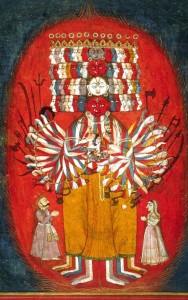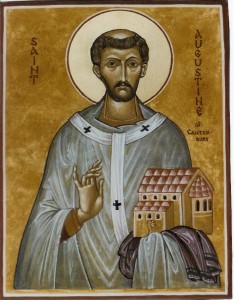
www.wikipedia.org
In addition to cultivating skills that are indispensable in the job market, a college-level education is frequently associated with long-term individual benefits. The ability to interpret and engage issues from a wider breadth of perspectives, and the cultivation of critical reasoning skills – as advocates of higher education will point out – leads to a more reflective lifestyle, and allows graduates to engage literary and artistic works in ways that are more meaningful and enriching. Higher level education is also lauded for its capacity to produce citizens that are inquisitive, as well as receptive towards other viewpoints.
Being exposed to different cultural practices and unfamiliar political views – as students within each generation have testified – frequently cause former systems of belief to appear less rigid, and more susceptible to reassessment. It has often been pointed out that a sense of commitment towards familial and communal ideals – particularly those of a religious or spiritual orientation – may appear increasingly tenuous as one begins to explore unfamiliar ideas, diverse organizations, and novel friend circles.
As recent studies prove however, entry into a higher level institution and the disintegration of religious belief fails to evoke a clear, correlative pattern. According to one study, universities have reported that at least a third of their respective student bodies participate in regular spiritual activities. Students within several universities have also expressed a shared desire to enlist religious speakers to speak at campus-wide events.
This phenomenon is restricted not only to educational institutions within the Midwest, but is increasingly pervasive in cosmopolitan regions as well. Towards the conclusion of 2012, New York University completed construction on the Center for Spiritual Life, partly as a response to the proliferation of spiritual activity within the university. The CSL arranges non-exclusive programs and meetings that center on exploring spiritual sentiments, as well as facilitating intercommunication between students of different faiths. The Center is also responsible for housing religious figures, including a Protestant Reverend, a Catholic Priest, a rabbi, and an imam.
For next week’s blogpost, I will interview the founders of three separate religious organizations in NYU: the Youth Evangelical Fellowship, the Islamic Student Association, and Hillel: The Jewish Culture Foundation at NYU. In doing so, I shall inquire into the histories of these three organizations, their programs and activities, and whether promoting interaction between different organizations constitutes a priority for each of these three groups. I will also interview the founding members in order to determine whether living in a fast-paced urban environment, and attending a secularized university poses a constant challenge to the consolidation, and furthering of personal devotion.

http://aidanharticons.com
————————————————————————————————————————————-
Pietro Crotti, New York University. Check out my Twitter!
Follow the Campus Clipper on Twitter and Like us on Facebook!
Interested in more deals for students? Sign up for our bi-weekly newsletter to get the latest in student discounts and promotions and follow our Tumblrand Pinterest. For savings on-the-go, download our printable coupon e-book!
Tags: religion, Student Life

